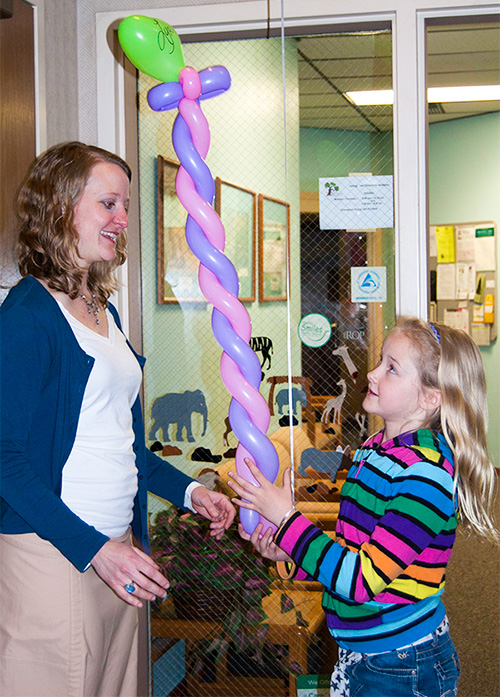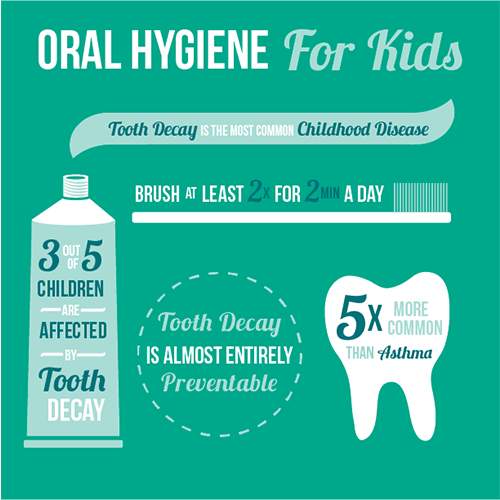General Dentistry
Promoting Lifelong Healthy Oral Habits In Children
At Caring Tree Children’s Dentistry, we make healthy habits fun for kids! Healthy mouths mean healthy bodies, and we’re here to help your children get on the path to wellness early. Regular visits with Dr. K, along with brushing, flossing, and good nutrition, are the key to keeping cavities and gum disease away. Plus, did you know that good oral hygiene can boost your children’s immunity? Let’s make sure your children are smiling and healthy for life!
Oral Hygiene
Before Kids Are Born
Did you know that healthy teeth begin in the womb? During the first trimester of pregnancy, a child’s teeth start to form. By the time they are born, 20 primary teeth are already in their jaw, waiting to appear. Good nutrition for the mom is key to ensuring optimal dental development for the baby.
Baby Teeth
Once your baby is born, it is your responsibility as a parent to kickstart your baby’s healthy oral journey. Here are important tips to help you care for your baby’s gums and teeth.
- To help clear away oral bacteria, use a soft, clean washcloth after feeding to clean your baby’s gums
- When teething begins, normally from three-to-nine months up to three years old, it may cause your baby some discomfort however, it doesn’t cause diarrhea, fever, or a runny nose. Extra cuddles, chewing on a cold, wet washcloth, and a little aspirin-free pediatric pain medicine should provide some relief to your baby
- Once your baby’s first tooth emerges, bring them in to see Dr. Kucera, and also begin a regular oral hygiene routine at home with an infant toothbrush and a tiny amount of toothpaste
- And when your baby has two or more teeth that touch, careful flossing should also be incorporated into the routine going forward.
Kids’ Teeth
As your child grows, ensure they start regular dental visits at Caring Tree Children’s Dentistry, who are always ready to help you help your child maintain a healthy oral journey. While at home, brush and floss your child’s teeth for them until they can do it themselves, usually around age six. Keep supervising until they can do it alone. Use toothbrush timers, create songs or games, or switch up the routine to make brushing fun and last the recommended two minutes. Poor dental hygiene in childhood can lead to difficulties, and pain, and affect self-esteem. Good habits formed in childhood can last a lifetime.
Teen Teeth
As kids grow into teenagers, dental concerns shift to straighter and whiter teeth. Adolescents may want more independence in their oral care routine and may resist talking to parents about it. But, don’t worry, Dr. Kucera is here to help. She will create a trusting relationship with your teens, reinforce healthy habits, offer whitening treatment, and refer them to an orthodontist for braces when necessary. Dr. K is also ready to assist your teens when their wisdom teeth emerge.
What About Fluoride?
Dr. Kucera suggests using fluoride toothpaste and may suggest further treatment based on your children’s needs. However, too much fluoride can be harmful, so Dr. K can provide guidance on its proper use during your children’s regular dental visits.
Mouthguards
Sports
Natural teeth are everyone’s greatest asset, so if your child plays contact sports, Dr. K recommends using a custom mouthguard to protect their teeth, jaw, and head. Dr. K can make a custom-fitted mouthguard that is comfortable and provides effective protection against oral injuries and potential tooth loss, as well as concussion damage.
Sleep Apnea
If your child is having trouble sleeping or if they are snoring, they might be suffering from sleep apnea. Dr. Kucera does not construct dental appliances for sleep apnea but will help by screening your child for sleep apnea and providing a referral to a trusted colleague who can help your child with this issue.
Sealants
Despite your best efforts to keep your child’s teeth clean, some areas may be hard to reach, leading to food particles getting stuck and forming cavities. To help get your child’s teeth back to health, Dr. K offers sealants, a thin plastic coating applied to the chewing surface of back teeth to help prevent cavities from forming in those hard-to-reach areas. They typically last for about three years and are recommended for the first and second permanent molars (around ages 6 and 12). If Dr. K recommends sealants for your child, she will discuss the benefits with you.
Experience the Caring Tree Difference
If you have any questions about general dentistry or would like to schedule an appointment with your pediatric general dentist, Dr. Michelle Kucera at Caring Tree Children’s Dentistry, request an appointment at one of our locations below. How can we help your child smile today?
















